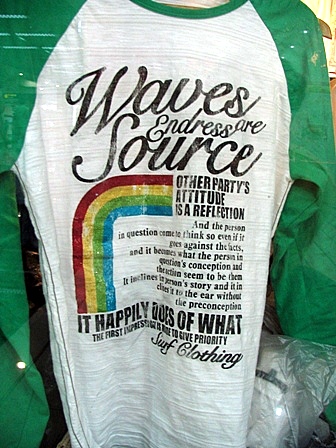 Shanghai’s spitting out poetry at a tremendous rate. In English. China recently became the world’s largest English-speaking country and is slated to be the world’s largest English-speaking country by 2025 (Google it) and the poetic forecast looks… well… kinda like deironized Flarf.
Shanghai’s spitting out poetry at a tremendous rate. In English. China recently became the world’s largest English-speaking country and is slated to be the world’s largest English-speaking country by 2025 (Google it) and the poetic forecast looks… well… kinda like deironized Flarf.
Of course, stodgy traditionalists complain that Chinglish can’t match authentic American Flarf in nuance, range and precision of cultural reference; even more reactionary critics protest that Iowa MFAs need not fear Chinese ESLs (the quaint and quietudinous “quality vs. quantity” argument).
But if Walt Whitman was right and the United States were “essentially the greatest poem” in the 19th and 20th centuries as the US barreled through the Industrial Revolution, epic wars Civil and World, and one helluva Great Depression en route to displacing Old Europe at the top of the power heap, then China appears set to become the 21st century’s greatest. Yet… it can be tricky finding actual human poets amidst the epic-absurdist poetry of it all.
Below is a random selection from one of my collection of t‑shirts purchased from Shanghai’s countless small shops, almost all of which sell items featuring translated mishmashes of traditional and pop-culture Chinese sayings combined with appropriated Western cultural tropes transmogrified by translation software and Chinese minds into poetry of the fractured globalized moment:
Wave are Endress Source
OTHER PARTY’S ATTITUDE IS A REFLECTION
And the person
in question come to think so even if it
goes against the facts,
and it become what the person in
question’s conception and
the action seem to be them
It inclines in person’s story and it in
clines it to the ear without
the preconception
IT HAPPILY DOES OF WHAT
THE FIRST IMPRESSION IS MADE TO GIVE PRIORITY
Surf Clothing
And what of mere individuals? Last year, Japanese-American poet Sawako Nakayasu and I hosted a great little reading series at Le Petit Xiaoxiao, a fantastic underground space run by a Japanese indie designer. Over a year, we hosted visiting poets Jen Hofer, Vanessa Place, Joshua Edwards, Lynn Xu, Teresa Carmody and Andrea Lingenfelter, who read her translations of trailblazing feminist poet and activist Zhai Yongming.
The audiences were mixes of expatriates and Shanghai artists and poets. In a teahouse meeting with two of those Shanghai poets, Hai An and Chen Dongdong, Sawako, Lynn and I were told of the sharp division persisting in post-Tiananmen China between “political” poets (who can’t get published by major publishers) and aesthetic-minded poets who can.
I’m still working on my Chinese and seeking out Shanghai poets to work with on a long-term (old-fashioned) translation project (any tips are welcome), but details will have to wait for a future report. In the meantime, the city remains thick with the crazy poetry of the China you keep reading about but have to see, hear and read in person to believe.